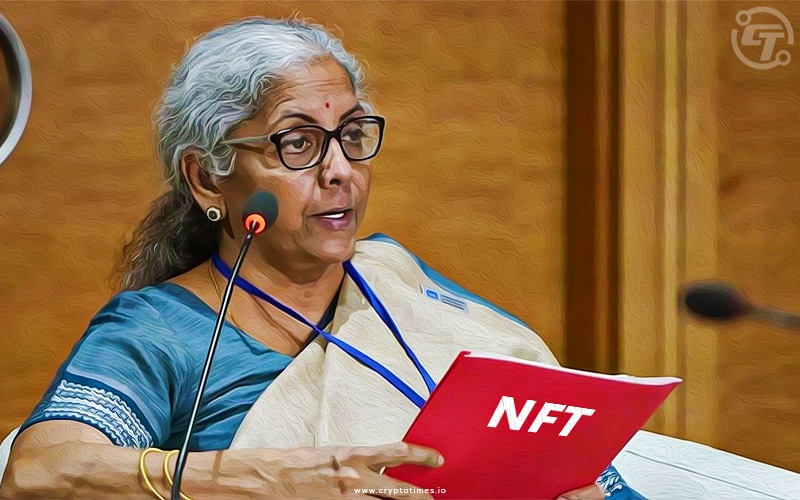In Brief:
- A clause from Indian Budget 2022 defines the term “virtual assets” such as NFTs.
- Indian Government may categorize NFTs as per their choice.
The recently launched Indian Government budget includes a section that defines the term virtual assets such as cryptocurrencies or non-fungible tokens (NFTs). As per the clause printed in the budget “for the purposes of this clause, (a) ‘non-fungible token’ means such digital asset as the Central Government may, by notification in the Official Gazette, specify.”
The clause can be described in three different ways. Firstly, the Government may create a law to classify which digital collectible is NFT. Every NFT would have to pass the certification process, which means the Government will have full authority to control NFTs. In budget 2022, Indian Finance Minister Nirmala Sitharaman imposed a 30% tax on crypto assets.
Another interpretation says that the Indian Government may certify the types and categories of NFTs such as it will determine digital art of glorifying history events as NFTs. But the random portraits from unknown artists will not be NFT anymore.
The third interpretation implies that the government will rename NFTs with “Virtual Digital Assets”, which means there will be no NFTs in India.
Shehnaz Ahmed, Senior Resident Fellow and Lead (Fintech) at Vidhi Centre for Legal Policy said “Unlike the definition of crypto assets, which is clearly laid out in clause 3(b) of the Bill, what qualifies as an NFT will be set out in a notification to be issued by the Central Government. One has to wait to understand if the notification sets out the broad features of NFTs or specific categories of NFTs”.
However, many intellectuals believe that the categories for each and every NFT is impossible for the Government as every day millions of NFTs are minted.
Bibin Babu, co-founder of Colexion said, “They will categorise it as an artwork, nostalgic memorabilia or sporting moment “.
Anirudh Rastogi, Managing Partner at Ikigai Law said, “No other regulator has tried to define NFTs. The bill regrettably provides an over-broad definition. They have recognised NFTs but have not defined them. It is good that they have left it undefined. They realised this is nuanced and required deliberation so let’s leave it for later.”






